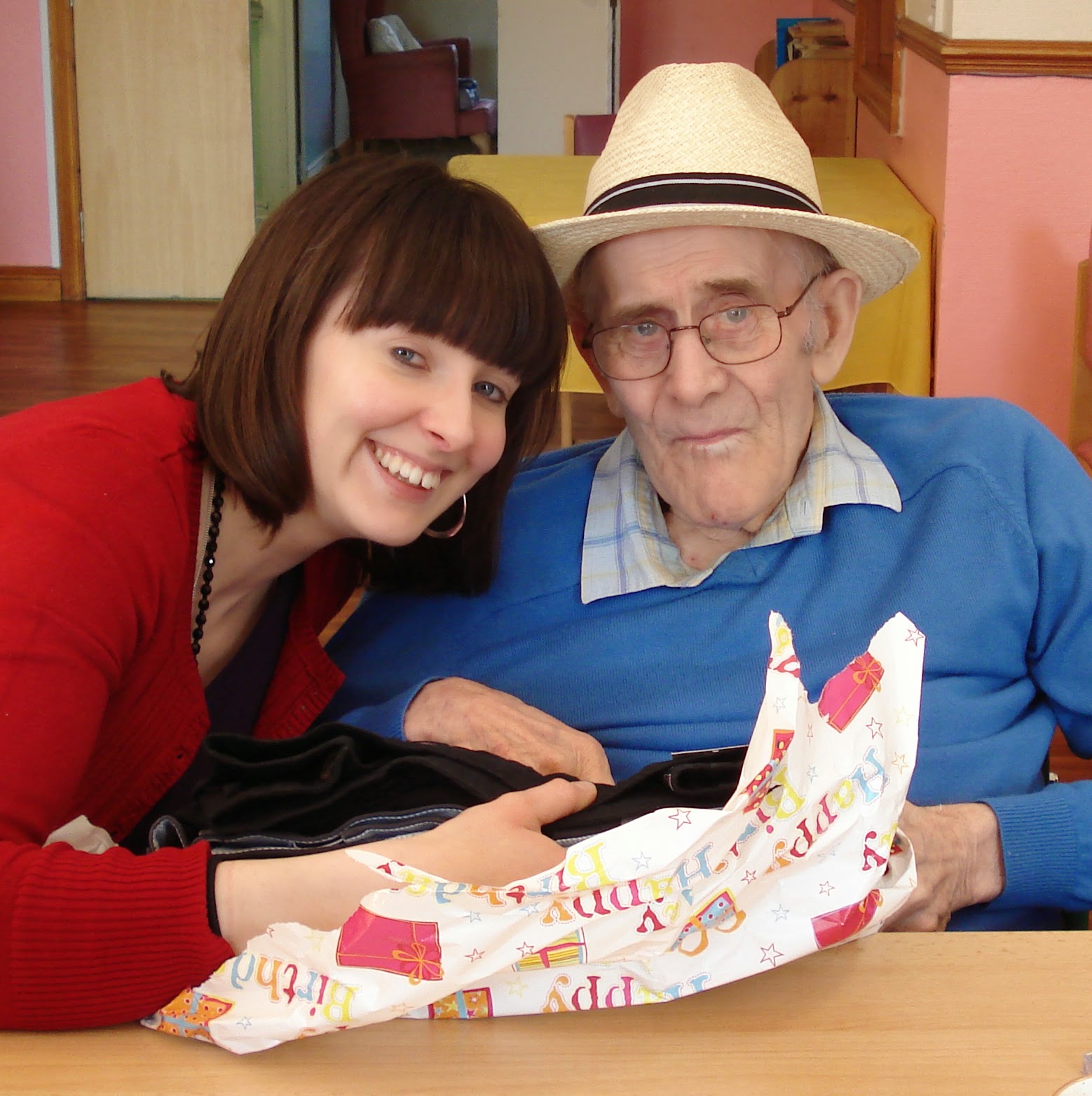My dad died just a month after David Cameron had launched the first ever ‘Prime Minister’s Challenge on Dementia’. It some ways it seemed very ironic – the country was finally waking up to dementia as dad was going to sleep for the last time. There was nothing in that Challenge that could possibly benefit dad, but I could see that it provided a focus that was badly needed for people who were newly diagnosed or who would go on to develop dementia in the future.
Since then there has been an increase in the diagnosis rate, an improvement in UK-wide awareness resulting in 1 million Dementia Friends, the creation of some ‘dementia friendly communities’, more dementia training for health and care staff, a renewed research effort, and an unprecedented global focus on dementia.
All that sounds very impressive, and undoubtedly it is an improvement on where we were 3 years ago, but I remain frustrated. Maybe I’m impatient, I know Rome wasn’t built in a day, and obviously care and support for people with dementia cannot be transformed overnight, but I remain unconvinced that everything that’s been done, great though it is, has really benefited people with dementia to the extent that the majority could say they are living well, or at least living better.
A major contributing factor to this situation are the cuts in social care, something I recently wrote about for Huffington Post. Most people who develop dementia have far more need for social care services than health services over the course of their dementia. Yes healthcare is important when diagnosing dementia, providing effective management of any long-term conditions that the person might have alongside their dementia (for example diabetes or high blood pressure), treating the common infections that people with dementia often develop as dementia progresses (urinary tract infections and pneumonias), and caring for people if they have a fall that requires hospital admission, but healthcare isn’t the bread and butter of dementia care.
Keeping people safe and well in their own homes for longer is the widely-agreed gold standard for dementia care. It’s what most people with dementia want and, frankly, are entitled to. It will always live in my memory that my dad was taken to hospital having collapsed from a larger stroke and never returned to his home. Not through his choice, or ours, but because he was deemed to have been too much of a risk to himself and others if he returned home. In hindsight, that could easily have been code for, “We don’t have any suitable accommodation that could help to keep him independent, nor can we provide the professional support he needs or support you as his family, therefore it’s just easier to keep him in hospital and then put him in a care home.”
In the 3 years since my dad died, or indeed the 12 years since he was moved into his first care home, I’m not convinced that any policy by any government of any political persuasion has actually ensured that if we lived that experience with my dad again now that the outcome would be any different. Daily life for people with dementia still, pretty much, amounts to muddling along in your own home (if you're 'allowed' to) - with some modifications if you’re fortunate enough to be helped with those, or indeed can afford them yourself – and being means tested for home care which might, in reality, amount to highly inadequate 15 minute visits that neither you as the person with dementia, or the care worker, actually feel achieve anything. The alternative is either hospital (free care) or a care home (means tested).
We know that people with dementia are ending up in our overcrowded A&E departments far too often, mostly because they haven’t been getting the social care that they need, and then proceeding to languish in hospital beds for far longer than they should be (much like my dad did, with one 3-month spell in hospital seeing him lose half his body weight as he was drugged with antipsychotics) all because of endless assessments and wrangles over funding.
We also know that GP’s are under pressure to diagnose increasing numbers of people with dementia, often referring them into memory clinics with long waiting lists. There is precious little support for people who are newly diagnosed, with too few specialist dementia nurses and then, of course, there are families, many of whom want to support their loved ones but are given scant help with this and a paltry carers allowance to live on.
Meanwhile, I’m not convinced the Care Act, that great bastion of apparent overhaul in caring for and supporting people, will provide much tangible assistance. Yes, there are entitlements to assessments, Councils have to help families by providing information, and next year sees the cap on care costs come into force, but for many families this means-tested social care system will still leave them with complex financial issues to overcome.
Add all this up and it amounts to a not particularly impressive stock take. I still don’t think most people with dementia feel listened to, nor do their families. A lot of what’s been achieved, it could be argued, is fancy window dressing – things that look good and are relatively easy to succeed with, whilst side-lining the really big issues about how we provide holistic, person-centred support for each individual living with dementia, preserve their independence for the longest possible time, give carers and families the help they require to continue to care and not breakdown, and properly provide and fund the social care people with dementia need.
I hope that dementia remains a priority for the next government, but even more than that, I hope politicians start to get to grips with the issues that are REALLY challenging for people with dementia and their families.
You can follow me on Twitter: @bethyb1886



